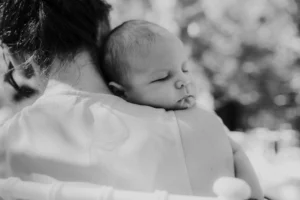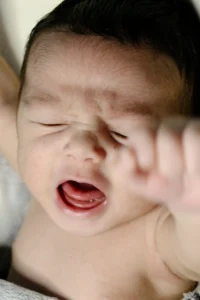Does your child snore loudly, breathe through their mouth, or seem unusually tired during the day? These could be more than just minor nuisances — they might be signs of a serious condition known as pediatric sleep apnea. While sleep apnea is often associated with adults, it can also affect children, impacting their health, behavior, and overall quality of life.
What Is Pediatric Sleep Apnea?
Pediatric sleep apnea is a sleep disorder where a child’s breathing is partially or completely blocked repeatedly during sleep. This disruption prevents the brain and body from getting enough oxygen, which can lead to various health and developmental issues. While the condition might seem rare, it’s estimated that 1-5% of children suffer from obstructive sleep apnea.
Red Flags for Pediatric Sleep Apnea
Recognizing the signs of pediatric sleep apnea is crucial for early intervention and treatment. Here are some key symptoms to watch for:
- Snoring: If your child snores regularly, it’s not something to ignore. Snoring can be a sign that the airway is partially blocked, making it harder for your child to breathe while sleeping.
- Mouth Breathing: Pay attention to how your child breathes, especially at night. Mouth breathing, particularly when coupled with snoring, can indicate a problem.
- Restless Sleep: Kids with sleep apnea often have restless sleep. You might notice them tossing and turning, waking up frequently, or sweating excessively during the night.
- Pauses in Breathing: If you notice pauses in your child’s breathing or gasping for air during sleep, it’s important to consult a pediatrician immediately.
- Daytime Sleepiness or Behavioral Issues: Lack of quality sleep can manifest in daytime sleepiness, irritability, difficulty focusing, and hyperactivity. If your child seems unusually tired or has trouble in school, sleep apnea could be a hidden cause.
Why You Should Talk to Your Pediatrician
Any of these symptoms should be a red flag that warrants a discussion with your child’s pediatrician. Often, parents might dismiss snoring or mouth breathing as normal or harmless, but these could be signs of a more significant problem. Early detection and treatment of pediatric sleep apnea can prevent a range of complications, including developmental delays, behavioral problems, and cardiovascular issues.
Treatment: Is Removing Tonsils and Adenoids Enough?
Many doctors recommend removing the tonsils and adenoids — the soft tissue at the back of the throat and the roof of the mouth — as a first-line treatment for pediatric sleep apnea. In fact, tonsillectomy and adenoidectomy are among the most common surgeries performed in children, and they can be effective in many cases.
However, while this surgery often resolves the issue, it’s not a guaranteed cure. Parents should continue to monitor their child’s sleep after the surgery and report any persistent symptoms to their doctor. The removal of tonsils and adenoids may significantly improve airway obstruction, but it is essential to remain vigilant about any signs of ongoing sleep problems.
Behavioral Issues Related to Sleep Apnea
Sleep apnea doesn’t just affect your child’s ability to rest; it can also impact their behavior and mood. Lack of quality sleep can lead to problems such as:
- Irritability and Mood Swings: Children with sleep apnea often wake up feeling tired and grumpy, which can lead to mood swings and irritability throughout the day.
- Difficulty Concentrating: Sleep apnea can make it hard for kids to focus on tasks, leading to difficulties in school and learning.
- Hyperactivity: Some children may become more hyperactive as a response to sleep deprivation. This hyperactivity can be mistaken for other behavioral conditions, such as ADHD.
By addressing sleep apnea early, parents can also help resolve these associated behavioral issues, allowing children to thrive both at home and in school.
What Parents Can Do Next
If you suspect your child has sleep apnea, take these steps:
- Keep a Sleep Diary: Track your child’s sleep patterns, noting any snoring, mouth breathing, or breathing pauses. Record any daytime symptoms such as fatigue or behavioral issues.
- Consult Your Pediatrician: Share your concerns and sleep diary with your pediatrician. They may recommend a sleep study to diagnose the condition accurately.
- Explore Treatment Options: If diagnosed, work with your healthcare provider to determine the best treatment plan for your child. This might involve surgery, lifestyle changes, or using positive airway pressure devices.
- Monitor Ongoing Symptoms: Even after treatment, continue to observe your child’s sleep and report any persistent or recurring symptoms to your doctor.
Don’t Wait – Take Action Today!
If you notice your child snoring, mouth breathing, or struggling with sleep, these could be signs of pediatric sleep apnea. It’s crucial to speak with your pediatrician first to discuss any concerns and explore potential treatments. After that, contact Rocky Mountain Sleeping Baby for expert guidance and support in creating a sleep plan that works for your family. Together, we can help your child achieve the restful nights they deserve.





